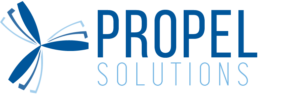The Challenge
First Nations Health Authority (FNHA) is the first and only provincial First Nations health authority in Canada, responsible for planning, designing, managing, and funding the delivery of First Nations health programs across British Columbia. FNHA is committed to “health through wellness” in its programs, services, and initiatives and is working to transform and reform the way health care is delivered to BC First Nations through its various services, programs, and initiatives.
The FNHA Human Resources Department is responsible for the oversight of the staff members who work at the FNHA to deliver these programs and initiatives. Recently, there had been an increase in the number of submissions through the Position Approval (PAF) process and an opportunity was identified to automate the process through new technology. Propel Solutions was engaged by FNHA to conduct a review of the PAF process in order to ensure processes are scalable for future growth and supportive of its people.
The Objective:
The project was conducted within a one-week period and included the following activities:
- Documenting the PAF Process: Propel conducted a comprehensive review of the current PAF processes as it impacts Human Resources, Finance, and functional departments to determine opportunities for improving capacity throughout the areas. This was completed through interviews with staff, staff surveys, opportunity workshops, and creating detailed process maps that were critiqued by managers and staff. The resulting analysis formed the first step for identifying available process improvements.
- Analyzing Requirements for Automation: To support FNHA’s automation of the PAF to new technology, Propel developed detailed Systems Maps to outline the existing technology touchpoints. Linkages between the data and information flow was highlighted, and instances of manual data entry between systems were analyzed. Additionally, Propel conducted requirements gathering sessions to identify key functionality and data to ensure the new technology would meet the needs of the users.
- Identifying Current PAF Use Cases: Propel conducted a base data analysis to demonstrate the linkages of types of job changes to volumes of the PAF. PAF use cases were categorized by their occurrence on or off the budgeting cycle and degree of financial impact to the organization. Using this analysis, the total cost per PAF was analyzed to quantify the total improvement opportunity available.
- Management Toolkit Analysis: Propel conducted a review of the tools Managers use to manage processes in their area including Business Strategy, Forecasting, Planning, Execution Control, and Reports. From this analysis, Propel was able to identify missing tools that should be developed in order to increase visibility throughout the areas.
The Results
The process review provided FNHA with a roadmap to scale their processes and ensure that resourcing activities are aligned to the budgetary cycle. Staff engagement throughout the analysis was high, with over 90 opportunities for improvement identified by the FNHA team. Opportunities were identified by Propel to reduce the volume of PAF’s and improve the process though a proactive planning cycle. Recommendations were provided to remove non-value-added time in the PAF and a roadmap for implementing the changes was developed to support the installation of improvements.

